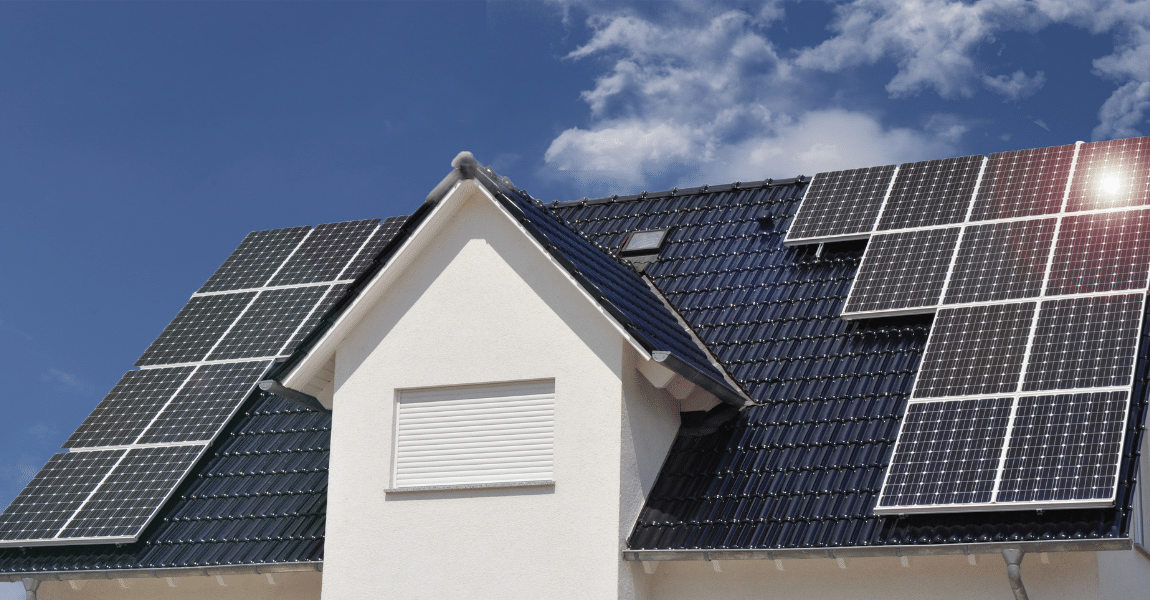The growing concern for environmental sustainability and the rising costs of electricity are driving more and more homeowners to consider installing solar panels on their homes. While the initial investment may seem daunting, the long-term savings on energy bills and the positive impact on the environment make it a worthwhile investment.
However, the cost of solar panel installation can vary greatly depending on several factors, making it crucial to understand the ins and outs of the installation process and how to find the best deals. This article aims to provide a comprehensive guide to understanding the cost of solar panel installation, including the various factors that affect it, the types of solar panels available and their cost, how to find the right contractor, negotiating prices and financing options, government incentives and rebates, and the pros and cons of DIY installation.
By the end of this guide, readers will have a better understanding of the costs associated with solar panel installation and how to find the best deals to suit their needs and budget.
Factors that Affect Solar Panel Installation Costs
Various factors affect the cost of solar panel installation, including the type of solar panel, the size of the system, and the complexity of the installation.
One of the most significant factors is the location in which the solar panels will be installed. The amount of sunlight a location receives will impact the efficiency of the solar panels, which can affect the cost of installation. For example, solar panels installed in areas with high levels of sunlight will be more efficient and require fewer panels, resulting in lower installation costs.
Another factor that influences the cost of solar panel installation is the size of the system. The size of the system required will depend on the amount of energy needed to power the home or business. A larger system will require more panels and therefore a higher installation cost. However, a larger system may also result in greater cost savings over time, as it can generate more energy and reduce reliance on grid electricity.
The type of solar panel used can also impact the overall cost of installation. Some panels are more efficient and durable than others, which can result in higher upfront costs but potentially greater long-term savings. Additionally, the complexity of the installation, such as the type of roof or ground mounting required, can affect the cost.
It is important to consider all of these factors when determining the cost of solar panel installation to ensure the most cost-effective and efficient system is installed.
Types of Solar Panels and Their Cost
Solar panels come in different types, each with varying costs. The two most commonly used types of solar panels are monocrystalline and polycrystalline.
Monocrystalline panels are more efficient and have a higher power output, but they are also more expensive. Polycrystalline panels, on the other hand, are less expensive but have a lower efficiency rating and power output.
Another type of solar panel is thin film, which is made by depositing a thin layer of photovoltaic material on a substrate. Thin film panels are less expensive than crystalline panels, but they also have a lower efficiency rating and power output. Thin film panels are often used in large-scale solar farms where cost is a major consideration.
Silicon-based solar panels are the most common type of solar panel, but there are also non-silicon-based panels, such as cadmium telluride and copper indium gallium selenide (CIGS). Non-silicon-based panels are less expensive than silicon-based panels, but they also have a lower efficiency rating and power output.
The type of solar panel that is best for your home or business depends on several factors, including your budget, energy needs, and location.
Finding the Right Solar Panel Contractor
Selecting the appropriate contractor for installing solar panels requires careful consideration and research to ensure that the job is completed efficiently and effectively. When searching for a solar panel contractor, it is important to choose a reputable company with a proven track record of successfully completed projects. This can be achieved by checking the company’s certifications, reviews, and references.
To avoid scams when selecting a solar panel contractor, it is important to be aware of common red flags. Some warning signs include contractors who require upfront payment, offer prices that seem too good to be true, or pressure customers into signing contracts on the spot. It is important to take time to research potential contractors and get multiple quotes to compare prices and services. Additionally, it is recommended to ask for proof of insurance and to review the contract thoroughly before signing.
In addition to selecting a reputable contractor, it is important to communicate clearly with the contractor to ensure that the installation meets your specific needs. This includes discussing the type and size of solar panels, the location and angle of installation, and any necessary permits or paperwork.
By carefully selecting a reputable contractor and communicating effectively, homeowners can ensure a successful and efficient solar panel installation.
Negotiating Prices and Financing Options
When considering the installation of solar panels, homeowners can explore negotiating prices and financing options to find the most cost-effective solution for their energy needs.
Payment plans are one option to consider. Some solar panel contractors offer payment plans that allow homeowners to pay for their solar panels over time rather than paying for everything upfront. This can make the cost of installing solar panels more manageable for homeowners who may not have the funds available to pay for everything upfront.
Another option to consider is tax credits. Homeowners may be eligible for federal and state tax credits when they install solar panels. These tax credits can help offset the cost of installation and reduce the overall cost of using solar energy. Homeowners should check with their tax advisor to determine their eligibility for tax credits.
Leasing options and grants are also available for homeowners who want to install solar panels. Leasing options allow homeowners to lease their solar panels from a contractor rather than purchasing them outright. Grants are available from the federal government and some states to help offset the cost of installing solar panels.
Homeowners should research their options and determine which financing option is best for their needs. By negotiating prices and exploring financing options, homeowners can find the best deals on solar panel installation and enjoy the benefits of renewable energy.
Government Incentives and Rebates
Government incentives and rebates can significantly reduce the upfront cost of renewable energy systems, making them more accessible to homeowners. Tax credits are one of the most common forms of incentives offered by the federal government, which can help to reduce the cost of solar panel installation.
Homeowners can claim a federal tax credit of up to 26% of the total cost of their solar panel system, which can amount to thousands of dollars in savings. Additionally, some states offer their own tax credits, which can further reduce the cost of installation.
Aside from tax credits, there are also state programs that offer sustainable energy grants to homeowners. These grants can be used to cover a portion of the cost of installing solar panels, and can vary in amount depending on the state and the program.
For example, in California, the Self-Generation Incentive Program offers incentives for homeowners who install solar panels, as well as other renewable energy systems. Homeowners can receive up to $2,500 per kilowatt of installed capacity, which can significantly reduce the upfront cost of the project.
Community solar is another option that homeowners can consider, which allows them to benefit from solar energy without having to install panels on their property. With community solar, a group of homeowners can collectively invest in a solar energy project, and receive credits on their energy bills based on their portion of the project’s energy production.
This can be a great option for homeowners who may not have a suitable location for solar panel installation, or who are not able to afford the upfront costs. Overall, government incentives and rebates can play a significant role in reducing the cost of solar panel installation, and homeowners should take advantage of these programs to make sustainable energy more accessible.
DIY Solar Panel Installation: Pros and Cons
DIY solar panel installation can be a cost-effective way for homeowners to generate their own renewable energy, but it also comes with several potential drawbacks. One of the most significant concerns with DIY solar panel installation is the potential for safety hazards. Solar panels are heavy and can be difficult to maneuver, which can result in accidents and serious injuries. Additionally, working with electricity can be dangerous if proper precautions are not taken.
Another factor to consider when deciding between DIY or professional solar panel installation is the level of expertise required. While some homeowners may have experience with basic electrical work, installing solar panels requires a higher level of knowledge and skill. A professional installer will be able to ensure that the panels are installed correctly and efficiently, which can have a significant impact on the performance of the system.
Ultimately, the decision between DIY or professional solar panel installation will depend on the individual homeowner’s skills and experience, as well as their budget and timeline. While DIY installation may be more affordable, it is important to weigh the potential safety risks and the level of expertise required before attempting to install solar panels on your own. Professional installation may be more expensive, but it will provide peace of mind and guarantee that the system is installed correctly and safely.
Frequently Asked Questions
How long does the installation process typically take for solar panels?
The solar panel installation timeline varies depending on factors such as the system size, roof type, and weather conditions. Typically, the installation process takes between one to three days for residential installations and longer for commercial systems.
Can solar panels be installed on any type of roof?
Solar panels can be installed on most types of roofs, including asphalt shingle, metal, tile, and flat roofs. However, compatibility issues may arise due to the condition and age of the roof, requiring modifications that can increase installation costs.
How often do solar panels need to be maintained and what is the cost of maintenance?
Solar panel maintenance frequency depends on the manufacturer’s recommended intervals, weather conditions, and the panel’s age. The cost of maintenance varies from $100 to $300 annually, including cleaning, inspection, and repair expenses.
Are there any tax implications for installing solar panels?
Installing solar panels may qualify for tax credits, incentives, and financing options. Some states and utility companies offer rebates as well. Consult a tax professional to determine eligibility and potential savings.
How much energy can be generated by a typical solar panel installation?
A typical solar panel installation generates energy through photovoltaic cells that convert sunlight into electricity. Efficiency comparison shows that newer panels have higher energy output and lower environmental impact than older models.
Conclusion
In conclusion, the cost of solar panel installation can vary depending on several factors such as the type of solar panels, the contractor hired, financing options, and government incentives.
It is important to conduct thorough research before making any decision regarding solar panel installation. Homeowners can benefit from negotiating prices and exploring financing options to help reduce the overall cost of installation.
Additionally, DIY solar panel installation may seem like a cost-effective option, but it requires a certain level of expertise and may not be suitable for everyone. It is recommended to seek professional help for a safe and efficient installation process.
With the right contractor and financing options, solar panel installation can be a worthwhile investment in the long run, providing a sustainable and environmentally friendly energy source for homes and businesses alike.


